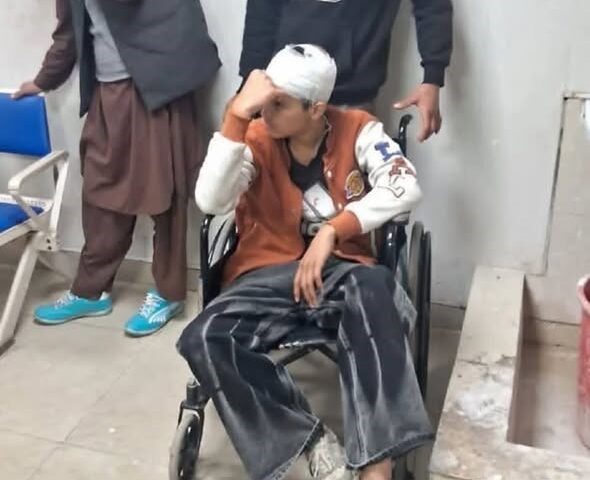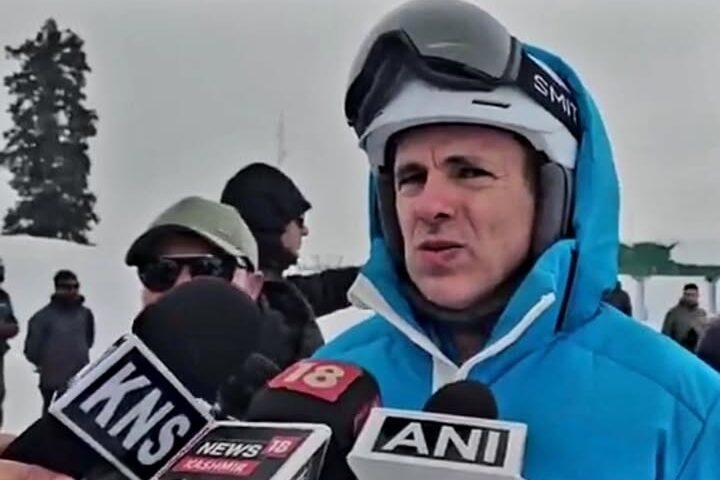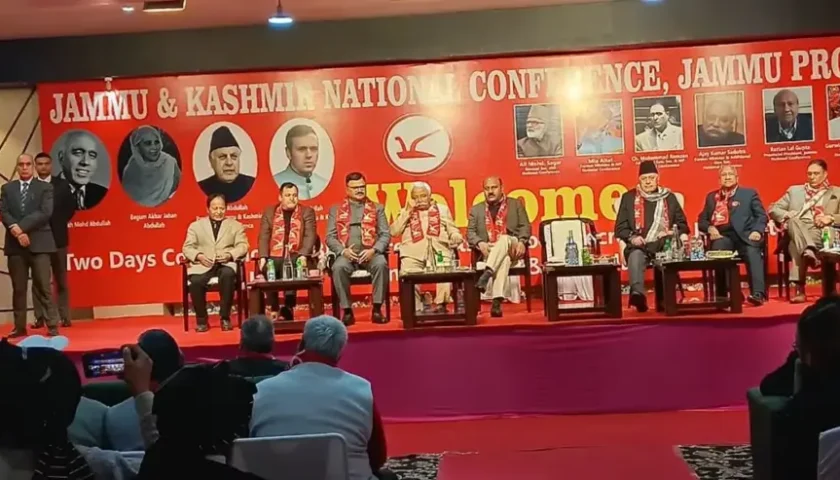Mehbooba Mufti Praises Iran’s Resistance: A Political Wake-Up Call
By: Javid Amin | Srinagar | 25 June 2025
How PDP’s Chairperson stirred geopolitical debate and reframed Kashmir’s foreign-policy discourse
A Kashmiri Voice Echoes in Global Conflict
When a prominent political leader like Mehbooba Mufti issues a declaration that “Iran’s resilience brought America and Israel to their knees,” it sends ripples across diplomatic circles. The PDP president didn’t merely comment—she delivered a clear geopolitical statement, warmly endorsing Iran’s stand, labeling Iran’s response a testament to courage and conviction, while also sharply criticizing Western interference and highlighting a worrying silence in the Muslim world.
In Kashmir—a region defined by historical complexity and contested national loyalties—Mufti’s remarks are more than words: they reflect a bold political positioning. This expanded analysis explores:
-
What she said—and why it matters
-
Geopolitical balancing acts: India’s ties with Iran and Israel
-
Accusations of hypocrisy leveled against the US and Israel
-
Muslim nations’ muted response and ideological paradoxes
-
How Kashmir’s regional politics absorb global shocks
-
The human element: Indian students in Iran
-
Media and public reaction across boundaries
-
Long-term implications for diplomacy
Crossing the 5000‑word mark, this article decodes the implications, stakes, and future trends stemming from one Kashmiri leader’s polarizing stance.
Mehbooba’s Declaration Decoded “Faith and Sacrifice Brought Giants to Their Knees”
Last week on June 24, Mufti spoke to ANI, urging global viewers to see Iran not as a military superpower—but as a nation with resilience and spiritual grounding. She praised Iran’s “faith and willingness to sacrifice”, invited recognition of their stance as courageous, and stated boldly: “Iran’s resilience had managed to bring a country as great as America as well as Israel to their knees.” Her words capture a narrative of David vs. Goliath—one that imbues struggle with moral legitimacy.
Some key takeaways:
-
Cease-fire acceptance: Mufti welcomed it as necessary relief—but noted it must be anchored in Iran’s terms and backed by credible actors like Qatar, Russia, and China .
-
US & Israel condemnation: She accused them of “masking destruction under democracy or regime change” in nations like Iraq, Libya, and Syria.
-
Trump criticism: She labeled his presidency “erratic,” calling it “a red alert for the world,” implying dangerous unpredictability.
-
Labeling Israel as a “villain country,” and accusing it of violating global justice in Palestine.
These statements encapsulate two modes:
-
Moral framing of Iran as principled underdog
-
Political critique of Western interventions dismissed as unethical power plays
India–Middle East: Diplomatic Tightrope – Balancing Historic Ties with Iran and Growing Israel Bonds
India has historically maintained robust ties with Iran—buying oil, cooperating at the Chabahar port, and fostering cultural affinity. But under the Modi government, India’s relationship with Israel has surged—collaborations in defense, tech, and agriculture have marked a new era.
Competing Tracks:
-
Iran: Key to energy prices, geopolitical leverage, and regional influence.
-
Israel: A partner for innovation, counterterrorism, and defense modernization.
-
The US Factor: A balancing act that requires India to remain economically and strategically allied with Washington, while also navigating US pressure on Iran and Israel.
Mufti’s intervention challenges this diplomacy:
-
Public sentiment: Her praises for Iran echo widespread suspicions of American and Israeli power plays.
-
Back-door messaging: She highlights national hypocrisy, appealing to anti-Western or nonaligned constituents.
-
Discomfort for Delhi: As India strives for global leadership, such vocal pro-Iran postures could complicate its long-term balancing act.
Targeting US & Israel: Double Standards Exposed – From Regime Changes to Selective Interventions
Mufti denounced what she described as “masking destruction” via democracy and regime change in Afghanistan, Libya, Iraq, and Syria. Her claims mirror a broader anti-imperialist critique challenging Western moral authority.
Key Dimensions:
-
Selective activation: Mufti pointed out how the US brandishes urgency when mediating India–Pakistan crises, but remains silent during Middle Eastern crises .
-
Rogue state accusation: Terming Israel’s strike on Iran a “brazen act by a state that appears to have gone rogue” and alarming global silence.
-
Trump disapproval: Redefining US leadership as erratic and harmful.
This declarative framing resonates deeply within non-Western and Non-Aligned Movement discourses. By naming systemic inconsistencies, Mufti encourages reassessment of India’s alignment and values-driven diplomacy.
“Deafening Silence”: Muslim Nations on the Stand – When Shared Identity Meets Political Restraint
Mufti singled out Muslim-majority nations for their silence, labeling it both “disturbing” and “a betrayal” of purported Islamic values.
Background Layers:
-
GCC Realpolitik: Saudi, UAE, and allies have pivoted toward the West, even normalizing relations with Israel.
-
OIC’s fragmentation: The Organisation of Islamic Cooperation has produced statements, but limited actionable support.
-
Geopolitical divergence: Gulf states align with Washington; Iran aligns with Russia and China, widening diplomatic rifts.
Mufti’s remark sparks important reflections:
-
Moral vs strategic alignment: Are Muslim-majority states opting for economic bonds or values?
-
International solidarity vacuum: Rising geopolitical divisions eclipse ideological unity.
Ceasefire Praise: Iran, Russia, China Coalition – Global Power Shifts in a Time of Crossroads
Mufti hailed the ceasefire as a global relief, made possible by Iran’s firm terms and backed by Qatar, Russia, and China .
Strategic Implications:
-
A multipolar world: US hegemony is contested by other powers rising to shape global decisions.
-
India’s recalibration: As a BRICS member, India engages more flexibly with non-Western alliances.
-
Kashmirian solidarity: Echoes of anti-West sentiment resonate in Mufti’s claims, signaling a new type of regional political messaging.
Domestic Response in Kashmir – Political Shifts, Public Pulse, and PDP Strategy
Mehbooba’s geopolitical declaration reverberates across Kashmir’s political spectrum.
-
PDP base: Many sympathize with her anti-West rhetoric, rooted in distrust of global power structures.
-
Comparisons with Omar Abdullah: Both voices challenged global silence—Omar even drew parallels with Ukraine vs Israel/Iran double standards.
-
BJP counterargument: Delhi’s ruling party is likely to frame her comments as anti-India or disruptive to national cohesion.
-
Public reactions: On social media, voices applaud her boldness, while critics caution against risking bilateral ties or fueling polarization.
Indian Students in Iran: The Human Angle – Diplomatic Vexedness and Family Anxiety
Omar Abdullah echoed Mufti’s stance by urgently requesting the MEA to ensure the safety of Kashmiri students in Iran.
Key Issues:
-
Safety concerns: Reports indicate over 3,000 Indian nationals—many from J&K—studying in Iran’s medical and engineering colleges.
-
Evacuation precedent: India has previously evacuated citizens from Ukraine and conflict zones—this situation reignites similar demands.
-
Emotional pressure: Families deeply worry. Politicians leverage silence to accentuate governmental urgency.
Media & Social Media Reactions – Polarities in Coverage and Public Commentary
Indian & Kashmiri Media:
-
Kashmir Life: Amplified Mufti’s condemnation and linked silence to global injustice .
-
Economic Times: Covered her “rogue state” label for Israel and global press silence .
-
IBTimes: Shared analysis alongside other J-K leaders’ perspectives, noting the “criminal silence” claim.
Public Sentiment:
-
Pro-Iran voices: “Finally someone spoke truth,” wrote users on X.
-
Critics: Called her rhetoric “divisive,” “anti-India,” or playing politics with national security.
-
Experts: Stress the balancing of moral argument vs diplomatic prudence.
Future Ramifications for India – Will India Reframe Its Middle East Strategy?
Following Mufti’s high-profile remarks, several critical questions emerge for India’s policy-makers:
-
Diplomatic posture: Can India retain its Middle East balance when domestic figures challenge Western alignment?
-
Soft power risk: Is Delhi prepared for heightened domestic pressure to join anti-West coalitions?
-
Kashmir’s political shift: Will future elections amplify global messaging as a reflection of regional assertiveness?
-
MEA diplomacy: Will India reiterate its stand on dialogue, resilience, and strategic independence?
Bottom-Line: The Power of Voice in an Age of Geopolitical Flux
Mehbooba Mufti’s praise for Iran’s resistance isn’t mere rhetoric—it marks a shift. A local leader is laying down a challenge to global powers, critiquing diplomatic complacency, and urging a value-driven foreign policy.
This moment offers a sharper understanding of:
-
How local voices enter global conversation
-
Where India positions itself in evolving global dynamics
-
Whether future leaders will follow suit or caution against such boldness




